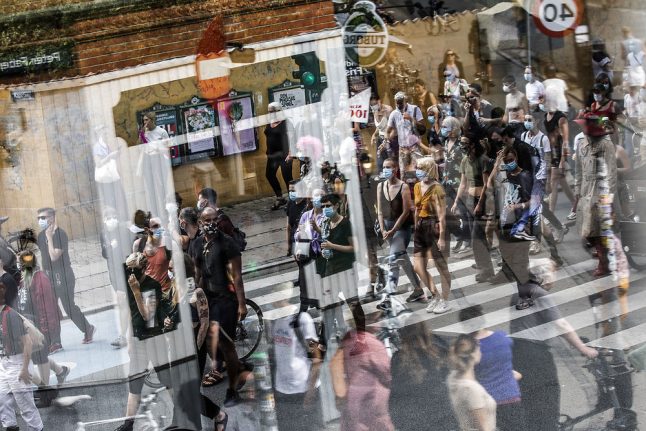The study compared how well protected one group of people who used masks were compared with a second group who did not use them. The results of the study were announced in a statement released by Copenhagen’s Rigshospitalet.
It is important to note that the study looked exclusively at the protective effects of masks for the wearer, and not at the wearer’s ability to protect others.
As such, the study cannot be used to draw conclusions on the general merits of using face masks as an effective preventative measure against Covid-19 infection, the researchers behind the study said.
The research project involved two groups totalling 6,000 people, and was conducted in April and May this year, when face mask use was not widespread in Denmark.
During this period, Denmark’s lockdown was still ongoing, with many businesses and public institutions closed.
In the non-face mask group, 2.1 percent of participants were infected with new coronavirus, while 1.8 percent of participants in the face mask-wearing group were infected.
That difference is not big enough to conclude with certainty a benefit of using face masks with regard to protecting oneself from infection.
The researchers stressed that there are limits to the conclusions that can be drawn from the results.
“The study thereby fails to confirm the expected halving of risk of infection for the wearer of the face mask, but the results could suggest a moderate level of protection of 15-20 percent,” the Danish-language press statement notes.
“According to the study authors, their findings offer evidence about the degree of protection mask wearers can anticipate in a setting where others are not wearing masks and where other public health measures, including social distancing, are in effect,” reads the English-language counterpart.
“The findings, however, should not be used to conclude that a recommendation for everyone to wear masks in the community would not be effective in reducing SARS-CoV-2 infections, because the trial did not test the role of masks in source control (transmission from an infected person to others) of SARS-CoV-2 infection,” it adds.
Neither did the study examine the effects of face masks in situations in which it is not possible to maintain a social distance, the researchers note.
READ ALSO: Denmark’s extended face mask requirement takes effect: These are the rules you need to know



 Please whitelist us to continue reading.
Please whitelist us to continue reading.
Releasing this study at this time will probably confuse and demotivate folks attitude towards masks.
Utterly useless study then.
This story is click bait for people who are disgruntled about wearing a mask. Publishing this brings no benefit to the community, instead it causes further confusion.
This story is click bait for people who are disgruntled about wearing a mask. Publishing this brings no benefit to the community, instead it causes further confusion.
Let’s find some more useless things to study with taxpayers money…
How about a study on the effectiveness of a mask if it’s only covering the mouth?
This study is at odds with other studies around the world, studies which show a significant benefit to the wearer. I am wearing a mask.
Even if the benefit is “only” 15-20% — that’s 15-20% !!!
Those who interpreted the results of this study are criminally irresponsible. As stated in previous comments, publishing this brings no benefit to the community, instead it causes further confusion. It also flies in the face of numerous studies worldwide.